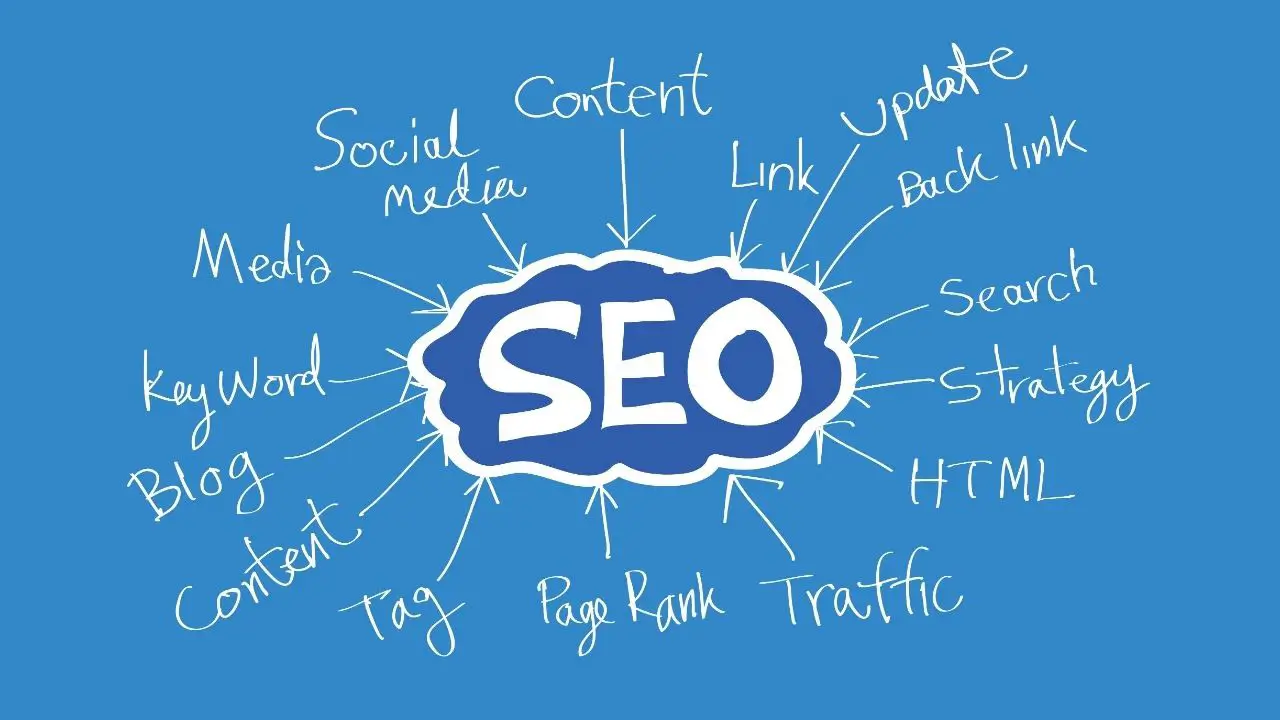Trying to compete in broad search results is like shouting in a stadium full of people — loud, exhausting, and easy to ignore. That’s where niche-driven search engine optimization flips the game.
Instead of chasing highly competitive keywords that drain your budget and barely convert, niche-driven SEO focuses on targeting specific audiences with laser precision. It’s not just a trend — it’s how smart brands are quietly dominating search results, one niche at a time.
If you’ve struggled to stand out online, get seen by the right people, or convert traffic into customers — this approach might be your most valuable strategy yet.
What Is Niche-Driven SEO and Why It Works?
Niche-driven SEO is the practice of optimizing your website and content for a very specific market segment instead of trying to rank for broad, high-competition keywords. It’s about depth over width — and precision over popularity.
For example, instead of trying to rank for “fitness coach,” a niche-driven SEO strategy might focus on “postnatal fitness coach in Austin” or “online strength training for women over 50.”
Here’s why this approach is so effective:
1. Less Competition, Higher Visibility
Broad keywords are dominated by industry giants with massive SEO budgets. Niche terms, however, have far less competition — giving you a real chance to rank on page one without spending years building authority.
2. Higher Conversion Rates
When someone searches for a very specific service or product, they’re usually much closer to making a decision. That means niche keywords often convert better than broad ones.
3. More Relevant Traffic
Instead of attracting random visitors, niche SEO brings in people who are actively looking for what you uniquely offer. You get fewer tire-kickers and more qualified leads.
4. Stronger Brand Positioning
By consistently targeting niche terms, you position yourself as the go-to expert in your category — not just “another option.” That authority translates into trust, backlinks, and long-term growth.
5. Better for New or Small Businesses
If you’re not a household name (yet), niche SEO gives you a realistic way to grow traffic without competing head-on with enterprise-level brands.
In short, niche-driven SEO helps you compete smarter, not harder — by focusing your efforts where they’ll deliver the most impact.
What is a niche in SEO?
In SEO, a niche refers to a specific segment of a larger market that shares unique needs, interests, or problems. Instead of trying to appeal to everyone, niche SEO focuses your efforts on serving one well-defined audience extremely well.
Examples:
- Broad keyword: “Digital marketing agency”
- Niche keyword: “Digital marketing agency for real estate agents”
- Broad keyword: “Online courses”
- Niche keyword: “Online coding courses for teenagers”
By narrowing your focus, you reduce competition and increase relevance — which is exactly what Google (and your audience) wants.
A well-chosen SEO niche usually includes:
- A specific target audience (e.g., moms, freelancers, dental practices)
- A specialized product or service (e.g., gluten-free baking, SaaS UX audits)
- A clear solution to a defined problem (e.g., back pain relief for office workers)
When your content speaks directly to a niche, it performs better — because it’s more useful, more targeted, and more likely to convert.
What are the 4 types of SEO?

What are the 4 types of SEO
To fully optimize your website and dominate your niche, it’s important to understand the four main types of SEO. Each plays a unique role in how your content performs in search results:
1. On-Page SEO
This focuses on optimizing the content and structure of individual web pages to make them more search engine–friendly.
Key elements include:
- Keyword usage and placement
- Title tags and meta descriptions
- Header tags (H1, H2, etc.)
- Internal linking
- Image optimization
- Content quality and relevance
Why it matters: It tells Google what your page is about — and helps users understand and engage with it.
2. Off-Page SEO
Off-page SEO refers to actions taken outside of your website to influence your rankings.
Key elements include:
- Backlinks from other websites
- Brand mentions and citations
- Social media signals
- Guest posting
- Online reviews and reputation
Why it matters: Backlinks act like “votes of trust” — they show Google that others find your content valuable.
3. Technical SEO
This ensures that your site is technically sound, fast, and easy for search engines to crawl and index.
Key elements include:
- Website speed and mobile-friendliness
- Secure HTTPS encryption
- Clean site architecture and URL structure
- XML sitemaps and robots.txt files
- Fixing crawl errors and broken links
Why it matters: Even the best content won’t rank if your site is slow, broken, or hard for Google to read.
4. Local SEO
Local SEO is about optimizing your online presence for local search, especially for businesses with physical locations or service areas.
Key elements include:
- Google Business Profile optimization
- Local citations (name, address, phone number)
- Localized keywords and content
- Reviews and location-based pages
- Map pack rankings
Why it matters: It helps your business appear when someone nearby searches for services you offer — like “dentist near me” or “plumber in Chicago.”
How do you hit a niche market by using SEO?
To reach a niche market effectively, you need to align your content, keywords, and site structure with the specific needs and language of your target audience. It’s not about chasing traffic — it’s about attracting the right traffic.
Here’s a step-by-step breakdown:
1. Identify Your Niche Audience
Start by defining:
- Who exactly are you targeting? (e.g., “busy moms,” “B2B SaaS founders,” “vegan athletes”)
- What pain points do they have?
- What solutions or outcomes do they seek?
Tip: Look at niche forums, Reddit threads, or Facebook groups to see what terms your audience actually uses.
2. Find Niche-Specific Keywords
Use SEO tools like Ahrefs, Ubersuggest, or Google Keyword Planner to find:
- Long-tail keywords with clear intent (e.g., “best yoga mats for bad knees”)
- Low-competition phrases with decent volume
- “Question” keywords (e.g., “how to start a podcast for therapists”)
Focus on keywords that speak directly to your niche — even if the volume is low. The conversion rate is often much higher.
3. Create Hyper-Relevant Content
Once you have your keywords, build:
- Blog posts that answer specific questions
- Service/product pages targeting niche needs
- Case studies, testimonials, or success stories within that niche
- Resource hubs tailored to one segment
Example: Instead of “SEO for coaches,” create “SEO strategy for life coaches targeting millennials.”
4. Optimize On-Page Elements
For every piece of content:
- Use your niche keyword in the title, URL, meta description, and first paragraph
- Add internal links to related niche content
- Use images, videos, or examples that reflect your target audience
5. Build Niche-Relevant Backlinks
Reach out to:
- Blogs, podcasts, and influencers in your niche
- Industry-specific directories
- Local organizations or partner sites
Backlinks from niche sources carry more relevance than general links — even if they’re smaller sites.
6. Monitor, Adjust, and Go Deeper
Use tools like Google Search Console or GA4 to see:
- Which pages are getting traffic from niche queries
- What keywords you’re ranking for (and missing)
- How people engage with your content (bounce rate, time on page)
Use this insight to create even more targeted content, optimize underperformers, or branch into micro-niches.
Bottom Line:
Niche SEO isn’t about more traffic — it’s about the right traffic.
Speak your audience’s language, solve their exact problems, and position yourself as the clear solution. Do that consistently, and you’ll win — even against bigger competitors.
Is SEO still worth it in 2025?
Yes — more than ever.
Despite evolving algorithms and the rise of AI-generated content, SEO remains one of the most cost-effective, long-term digital marketing strategies in 2025.
Here’s why SEO is still a smart investment:
1. Search Volume Isn’t Slowing Down
People are still turning to Google for answers, products, and services — over 8.5 billion searches per day, many of them niche, local, or transactional. Voice search, mobile queries, and AI integrations are adding more surface area for search, not replacing it.
2. Paid Ads Are Getting More Expensive
CPCs (cost-per-click) are rising across industries. SEO helps reduce dependency on paid channels by driving organic traffic that compounds over time — even when your ad budget pauses.
3. Google Prioritizes Authority + Relevance
In 2025, Google’s algorithm continues to favor helpful, specific, and niche content — especially from sites that demonstrate E-E-A-T (Experience, Expertise, Authoritativeness, and Trust). That’s exactly what niche-driven SEO is built for.
4. AI Won’t Replace Organic Trust
AI tools (like ChatGPT, Bard, or Gemini) are changing how people explore information — but most still verify what they find via organic search. And when it’s time to buy or book? They still Google.
5. SEO Powers All Content Channels
Your blog, YouTube videos, landing pages, even email list growth — all benefit from strategic SEO. It’s the foundation for visibility across channels.
So, Is SEO Still Worth It?
If you want predictable, compounding traffic and long-term digital visibility — yes.
But it’s not about shortcuts anymore. It’s about understanding your audience, targeting the right niche, and consistently delivering valuable content.
Niche driven search engine optimization strategies
Now that we’ve covered the “why” behind niche SEO, let’s dive into the “how.” These strategies will help you dominate your niche, even if you’re starting small — by focusing on relevance, intent, and authority within a clearly defined market.
1. Build Topic Clusters Around Your Niche
Don’t just target a single keyword — build a network of related content that supports your niche topic.
How to do it:
- Create a main “pillar page” (e.g., “Online Fitness for New Moms”)
- Add supporting blog posts: “Safe Postpartum Exercises,” “Home Workouts with a Baby,” etc.
- Internally link them all back to the pillar page
Result: Stronger topical authority + better rankings for both long- and short-tail keywords
2. Use Long-Tail Keywords With Clear Intent
Go beyond “category” keywords like “copywriter” or “nutritionist” — instead, use search phrases that match user intent.
Examples:
- “SEO copywriting for law firms”
- “Meal plans for women with PCOS”
- “Eco-friendly packaging supplier USA”
Why it works: These searches are made by people ready to buy, not just browsing.
3. Publish Deep, Specific Content
Google now rewards depth and originality. General overviews won’t cut it — write like a specialist.
Tactical tips:
- Include niche terminology your audience uses
- Show examples, case studies, or success stories within that niche
- Address pain points no one else is covering
Pro tip: Use Google’s “People Also Ask” and Reddit threads to find specific questions your niche audience is asking.
4. Optimize for Local + Niche
If your niche has a location component, double down on local SEO + niche relevance.
Example:
Instead of “private yoga sessions,” target “private yoga sessions for seniors in San Diego.”
- Use geo-specific landing pages
- Get listed in niche directories and local listings
- Add neighborhood names in title tags, H1s, and alt text
5. Leverage Schema & Featured Snippets
Using structured data and optimizing for snippets can help your niche content stand out.
Use schema for:
- FAQs
- Reviews
- Services
- Local business info
And write content that answers direct questions in clear, snippet-friendly blocks.
6. Collaborate Within the Niche
Build backlinks and authority through niche-based relationships:
- Partner with influencers or micro-creators in your space
- Write guest posts on niche blogs
- Get featured in targeted directories or podcasts
- Run niche-specific webinars or roundups
These links are often easier to earn — and more relevant — than generic SEO link-building.
7. Monitor & Double Down on What Works
Use Google Search Console or Ahrefs to track:
- Which long-tail niche keywords you’re ranking for
- Which pages are bringing qualified traffic
- Which ones are underperforming or bouncing
Then create more content around high-performing niches — and optimize the rest.
Bottom line:
Niche SEO isn’t about doing “more” — it’s about doing exactly what your ideal customer needs, better than anyone else.
Best niche driven search engine optimization company

If you’re serious about growing within a specific market — whether it’s tech startups, dental practices, eco-brands, or online educators — you need an SEO partner that understands how to win in the long tail.
At Taif, we don’t believe in one-size-fits-all strategies. As a niche-driven search engine optimization company, we specialize in building hyper-targeted SEO campaigns that speak directly to your audience, solve their problems, and drive qualified traffic that converts.
Why choose Taif for niche SEO?
- Precision Keyword Research — We go deep into your niche to find high-intent, low-competition keywords others overlook.
- Specialized Content Strategy — Every piece of content is crafted for your unique audience and aligned with search intent.
- Niche-Focused Link Building — We build authority in your space through partnerships, guest posts, and citations that actually matter.
- Transparent Reporting — You’ll always know what’s working, what’s improving, and how SEO is impacting your bottom line.
- Scalable Growth — We start lean, then scale what works — helping you grow traffic without wasting time or budget.
Ready to Own Your Niche?
You don’t need to be everything to everyone.
You just need to be undeniably visible to the people who need what you offer.
Book your free strategy call with Taif — and let’s turn your niche into your biggest advantage.
FAQ
What does “niche-driven SEO” actually mean?
It means focusing your SEO strategy on a specific, well-defined market segment — rather than trying to rank for broad, general keywords. The goal is to attract highly targeted traffic that is more likely to convert.
Is niche SEO only for small businesses?
Not at all. While it’s especially powerful for startups and small brands, even large companies use niche SEO to dominate specific verticals, launch new products, or target different audience segments more effectively.
How do I know if my niche is “too small” for SEO?
If people are searching for solutions related to your niche — even a few hundred times per month — there’s opportunity. The key is quality over quantity. Niche traffic tends to convert at a much higher rate than general traffic.
How long does niche SEO take to work?
You can often see results faster than broad SEO campaigns because you’re targeting less competitive keywords. Some niches see ranking movement in 30–60 days, but consistent growth typically takes 3–6 months or more.
Can I do niche SEO and still run ads or social media campaigns?
Absolutely. In fact, niche SEO works best when integrated with other channels like paid search, content marketing, and email. It builds long-term organic visibility while reducing your reliance on paid traffic.
How is niche SEO different from local SEO?
Local SEO targets a geographic location, while niche SEO targets a specific audience or industry. The two often overlap — for example, “pediatric dentist in Austin” is both niche and local.
What makes Taif a strong niche SEO partner?
We specialize in helping businesses grow by focusing on their most valuable audiences. We don’t chase vanity metrics — we craft precise, data-driven SEO strategies that bring you the right traffic, from the right people, at the right time.
Conclusion
In a crowded digital space, trying to rank for everything means standing out for nothing. Niche-driven search engine optimization isn’t just a tactic — it’s a smarter, leaner strategy to get in front of the right audience with content that actually converts.
By focusing your SEO efforts on a specific niche, you gain:
- Lower competition
- Higher relevance
- Better conversion rates
- Faster, more measurable ROI
Whether you’re a local business, startup, or service provider, niche SEO helps you punch above your weight — without spending like the big brands.
If you’re ready to stop guessing and start growing, partner with an agency that understands how niche markets work — and how to help you dominate yours.
Book a free strategy call with Taif — and let’s turn focus into results.



